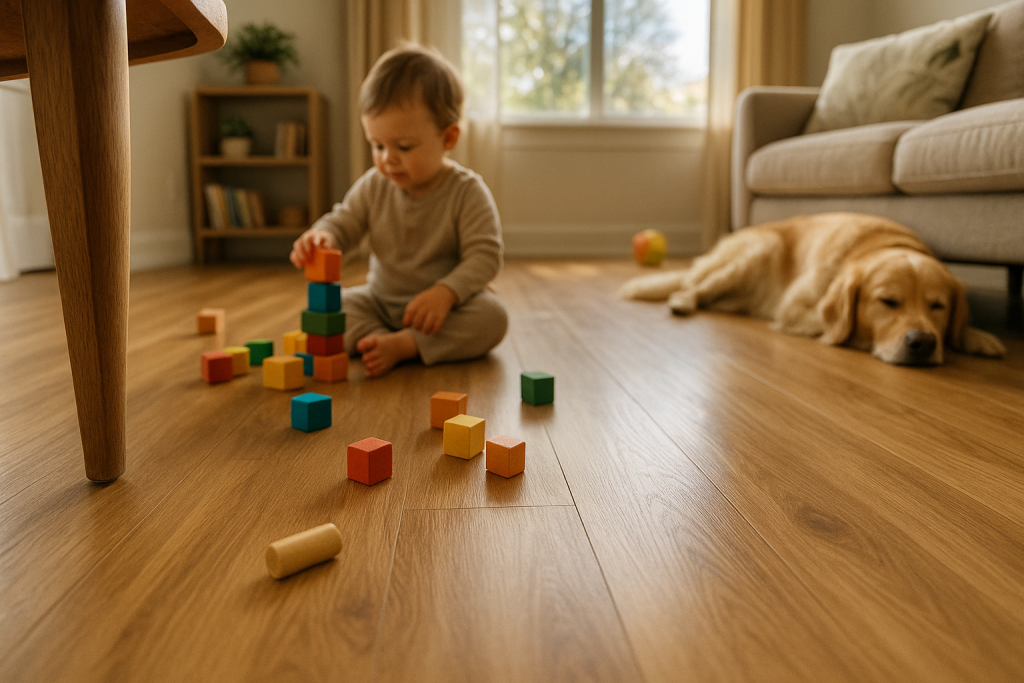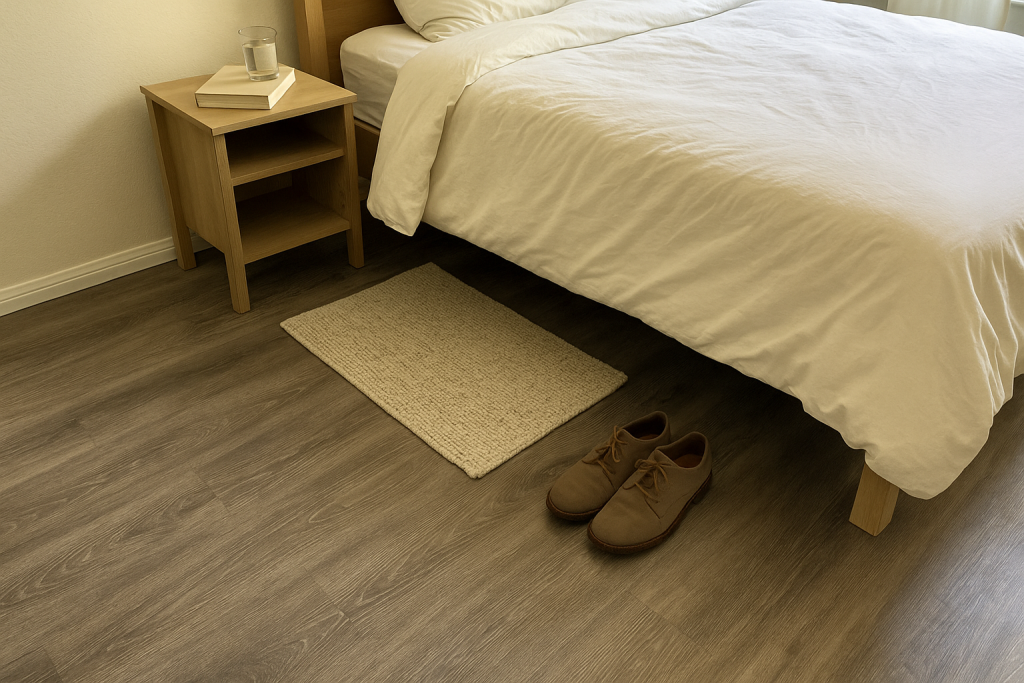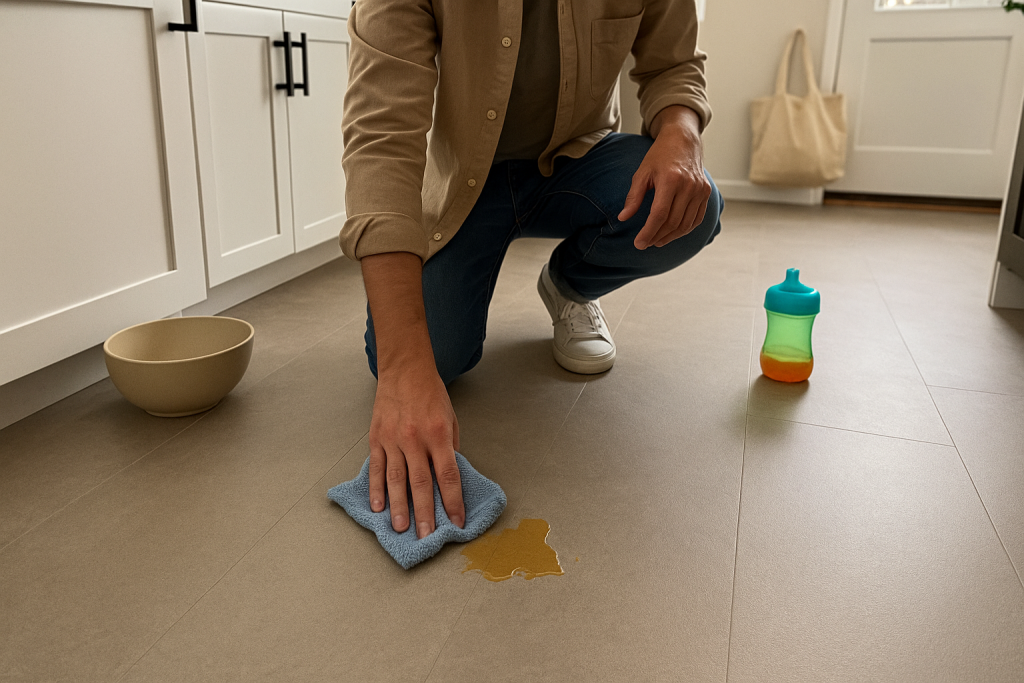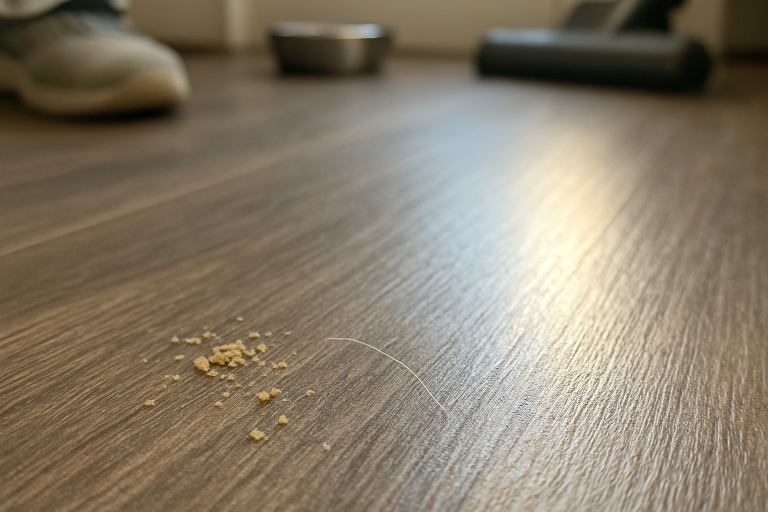Are allergies and constant sneezing making life at home difficult? Choosing the right flooring can make a big difference, especially if you want a cleaner, healthier space. That’s why more families are switching to allergy-friendly vinyl flooring. In this article, we’ll cover what makes vinyl flooring a smart choice for allergy sufferers, how to choose the best type for your home, and easy cleaning tips for a dust-free, healthier living environment.
What Makes Vinyl Flooring Allergy-Friendly?

Vinyl flooring stands out because its surface doesn’t trap dust, pollen, or pet dander the way some materials do. Unlike carpet, which can hold onto allergens, allergy-friendly vinyl flooring is non-porous and easy to clean. This quality makes it a favorite among those comparing types of flooring in Singapore for families or people with allergies. Many allergy-friendly vinyl options are also low-VOC, meaning they release fewer chemical fumes and contribute to better indoor air quality.
Some advanced types even feature antimicrobial layers or coatings. If you’re curious about these innovations, you can learn how titanium dioxide makes vinyl flooring cleaner and healthier, helping to break down bacteria and keep your floors truly safe.
Benefits of Allergy-Friendly Vinyl Flooring

There are several reasons to choose vinyl over other flooring types if you want an allergy-friendly home:
- Easy to Clean: Dust and dirt stay on the surface and are simple to sweep or mop away.
- No Trapped Allergens: Unlike carpet, vinyl doesn’t hold onto pet hair or dust mites.
- Water Resistant: Great for kitchens and bathrooms where moisture might be a problem.
- Safe for Sensitive Individuals: Chemical-free flooring options are now available, reducing the risk for kids, pets, or anyone with sensitivities.
Families with children may find it helpful to review kid-friendly vinyl flooring choices or read about pet-friendly, scratch-resistant flooring to find the right fit for everyone at home.
How to Choose the Best Allergy-Friendly Vinyl Flooring
When picking the right allergy-friendly vinyl, look for options that are certified non-toxic and low-VOC. Certifications such as FloorScore® and Greenguard ensure the flooring emits fewer chemicals, making your home’s air cleaner. If you’re wondering about installation or what to expect, our guide on what to know before installing vinyl flooring covers important steps and tips.
For homes with older adults or anyone concerned about slips, look into non-slip vinyl flooring for seniors. These options help prevent accidents while still offering easy cleaning and comfort.
Cleaning and Maintenance Tips

Maintaining allergy-friendly vinyl flooring is simple and effective:
- Sweep or vacuum weekly to remove dust and debris.
- Use a damp mop with mild, non-toxic cleaners.
- Avoid harsh chemicals that could damage the floor or irritate sensitivities.
Curious how vinyl compares to other types or what makes loose lay vinyl flooring so easy to clean and install? Loose lay styles are a great option for renters or busy families, offering simple replacement and minimal mess.
Frequently Asked Questions
Yes, allergy-friendly vinyl flooring is designed to be safe for children and pets. Look for options labeled as non-toxic vinyl flooring and chemical-free flooring, as these are free from harmful chemicals and easy to clean—perfect for busy family homes.
Absolutely. The non-porous surface of allergy-friendly vinyl flooring prevents dust, pet dander, and pollen from getting trapped. This makes it much easier to clean compared to carpets or some hard floors. For more on keeping your floors dust-free, see our cleaning and maintenance tips.
The best vinyl flooring for allergy sufferers is typically low-VOC vinyl flooring, which means it releases fewer chemicals into the air. Also, consider vinyl floors with antimicrobial coatings, like Flornano self-sanitising vinyl, for extra protection.
Cleaning allergy-friendly vinyl flooring is simple: sweep or vacuum weekly, and use a damp mop with mild soap. Avoid strong chemicals, as they can irritate allergies and damage your floor. Learn more about easy cleaning tips for vinyl flooring and see how simple maintenance supports a healthier home.
Yes, especially if you choose options that are certified low-VOC or non-toxic. This reduces chemical emissions and makes your home’s air cleaner and safer for everyone—especially those with allergies or asthma.
Definitely. Regular vinyl flooring might contain more chemicals or lack features like antimicrobial coatings. Allergy-friendly vinyl flooring is specifically made to be safer, cleaner, and easier to maintain for sensitive individuals.
Pet-friendly vinyl flooring that is also allergy-friendly is ideal. These products resist scratches, moisture, and are easy to keep free of fur and dander.
Yes, you can find non-slip vinyl flooring for seniors that’s also allergy-friendly, offering both safety and a healthier living environment.
Switching to allergy-friendly vinyl flooring can transform your home into a cleaner, healthier place—whether you’re raising a family, living with pets, or caring for aging parents. For more tips, visit our blog on antimicrobial vinyl flooring or see why so many people love chemical-free flooring for their families. Ready to take the next step? Contact us for a free consultation, or explore more articles to keep your home safe and healthy.






